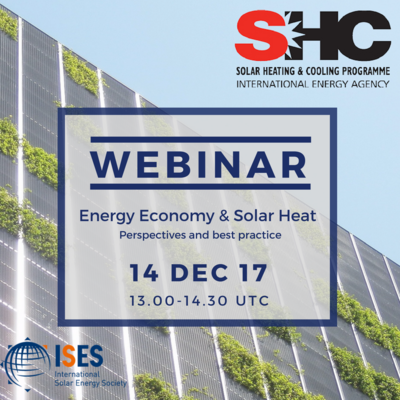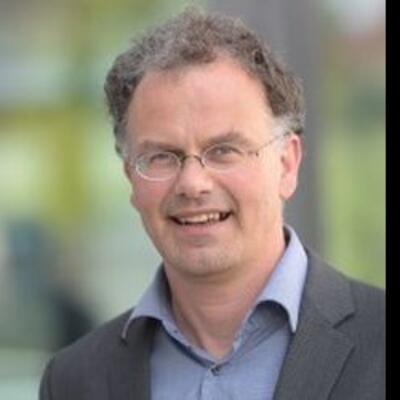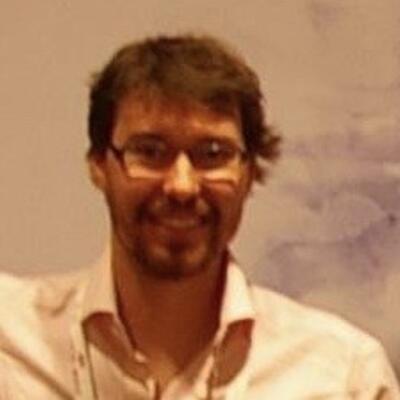
Solar Academy: Energy Economy and Solar Heat – Perspectives and best practice
What role solar thermal will play in the energy sector in 2050 is one of the principal questions that the international Task 52 research project on Solar Heat and Energy Economics in Urban Environments intends to answer. This webinar will give information in two areas, one on energy scenarios about future development of energy systems and two on best practices, actual economy and planning tools for solar heat based urban energy concepts.
We invite all stakeholders to join the 1.5-hour webinar scheduled for Thursday, 14 December 2017, from 13 to 14.30 GMT. You can register online.
This will be the fourth of a series of webinars organized by the IEA SHC Programme’s Solar Academy and hosted by the International Solar Energy Society. A recording of the event and the presentations from the webinar will be made available on the IEA SHC website, www.iea-shc.org, after the live stream. Join us for a discussion about the opportunities and challenges future role of solar heat in urban environments.
The SHC Solar Academy is a means to share key results of the IEA SHC Programme with stakeholders from business and science. The webinars are one of four ways in which the IEA SHC is reaching out to a global audience to exchange information and to support R&D efforts and the implementation of solar heating and cooling projects all over the world. For more information on other Solar Academy activities, please go to: https://www.iea-shc.org/solar-academy
More information on Task 52: http://task52.iea-shc.org
Panellist speakers and topics:
- Sebastian Herkel: Energy Scenarios- which role could solar thermal play in 2050?
- Martin Joly: Solar district heating, from single family house scale to city scale - Methodology, Economic features and case studies
Speakers
Sebastian Herkel

Sebastian Herkel is Department Head of “Energy Efficient Buildings” at Fraunhofer Institute for Solar Energy Systems in Freiburg, Germany. He graduated from the University of Karlsruhe with a degree in Mechanical Engineering. He is a researcher working in applied research in building energy performance and renewable energy systems. He is presently leader of the IEA SHC Task 52: Energy Economy and Solar Heat. His focus is on scientific analysis of building performance and technologies for integration of renewable energy in buildings.
Martin Joly

Martin Joly is currently Project Leader in the R&D Department of Sorane SA, a top Swiss company specializing in advanced building energy engineering. He earned his Bachelor of Science in Physics and Mathematics at the University of Fribourg and his Masters Degree in Energy at the Ecole Centrale de Paris. After completing his PhD in the field of nanomaterial for solar energy applications at Ecole Polytechnique Fédérale de Lausanne, he joined Sorane SA. His main area of expertise is building physics and advanced materials for solar energy conversion. Within in the framework of the IEA SHC Task 52: Energy Economy and Solar Heat, Sorane SA is leading Subtask B on Methodologies, Tools and Case studies for Urban Energy concepts.
Gabriel Ruiz
Gabriel Ruiz is project manager at the CREM (Centre de Recherches Énergétiques et Municipales). He obtained his Master degree in the EPFL in 2006 after having studied mechanical engineering and thereafter specialized in the field of energy and thermodynamics. In charge of relevant CREM’s project, he is involved in the Task 52 of the IEA work program and also recently participated to the ERA-NET Cofund project call where the proposal “Decision-support environment for planning and integrating multi-energy networks and low-carbon resources in cities” was awarded in December 2015. He is also the operating manager of the CREM’s spin-off Navitas Consilium, active in elaborating energy planning for local authorities and promoting energy oriented tools.

